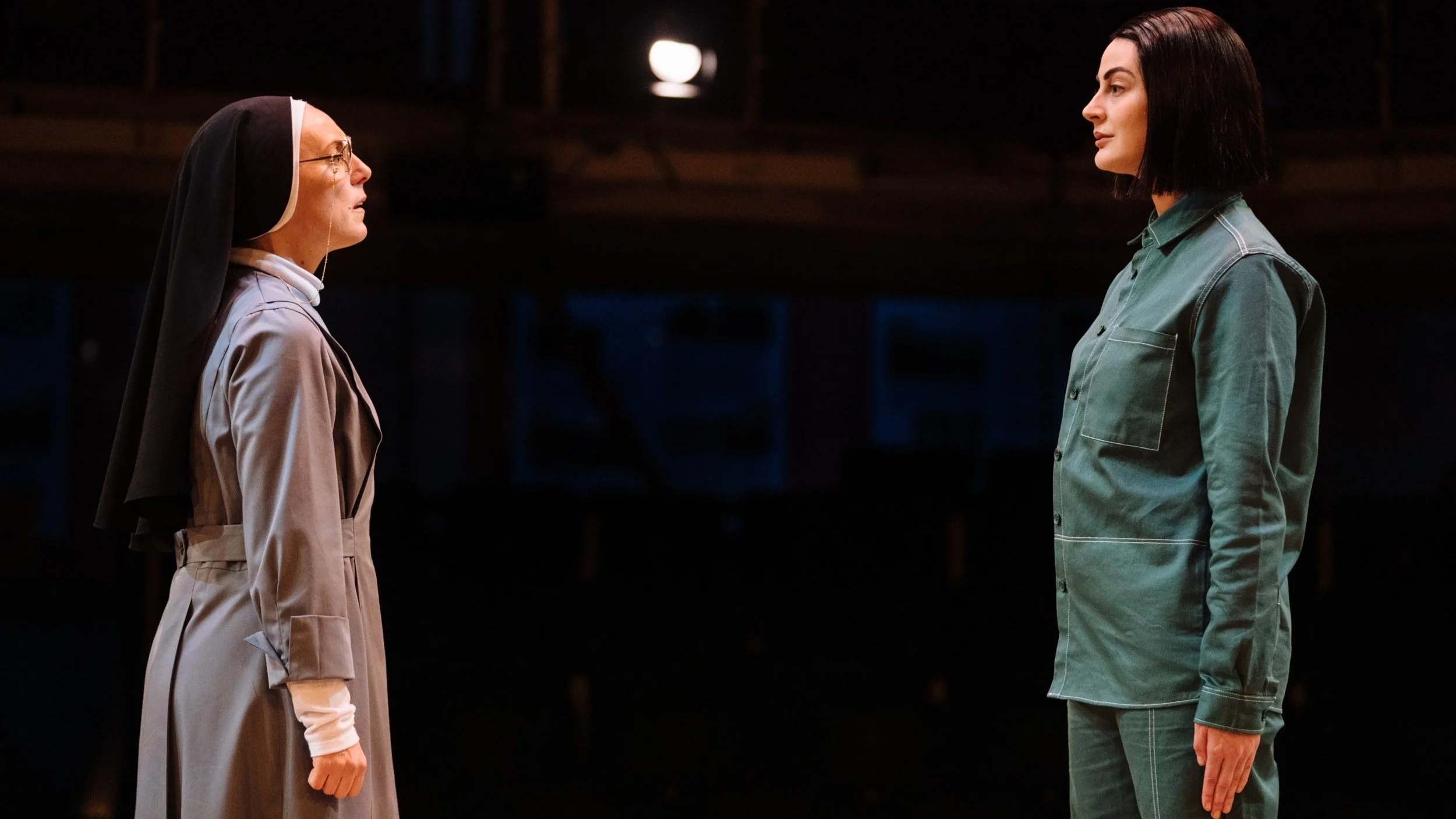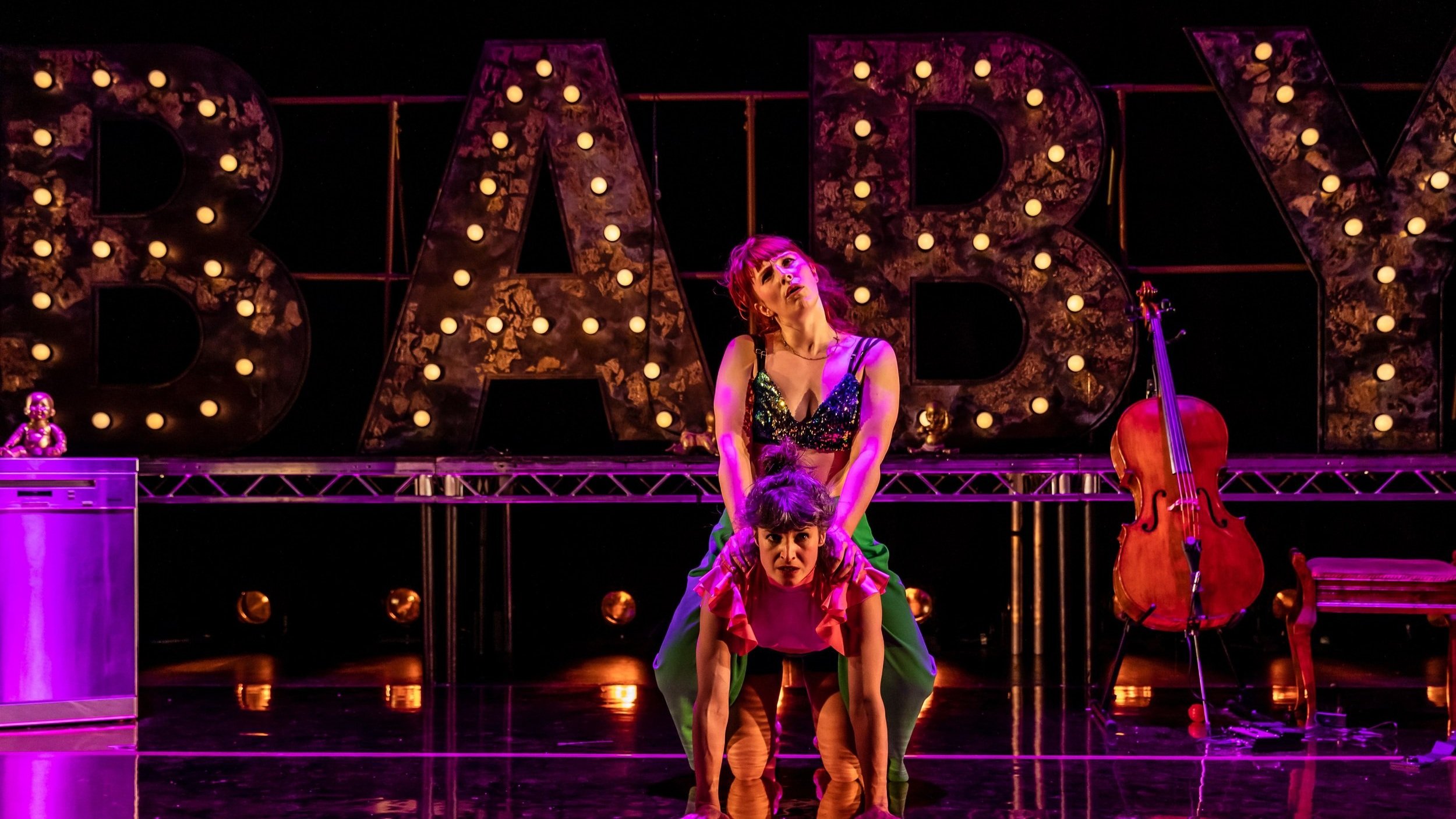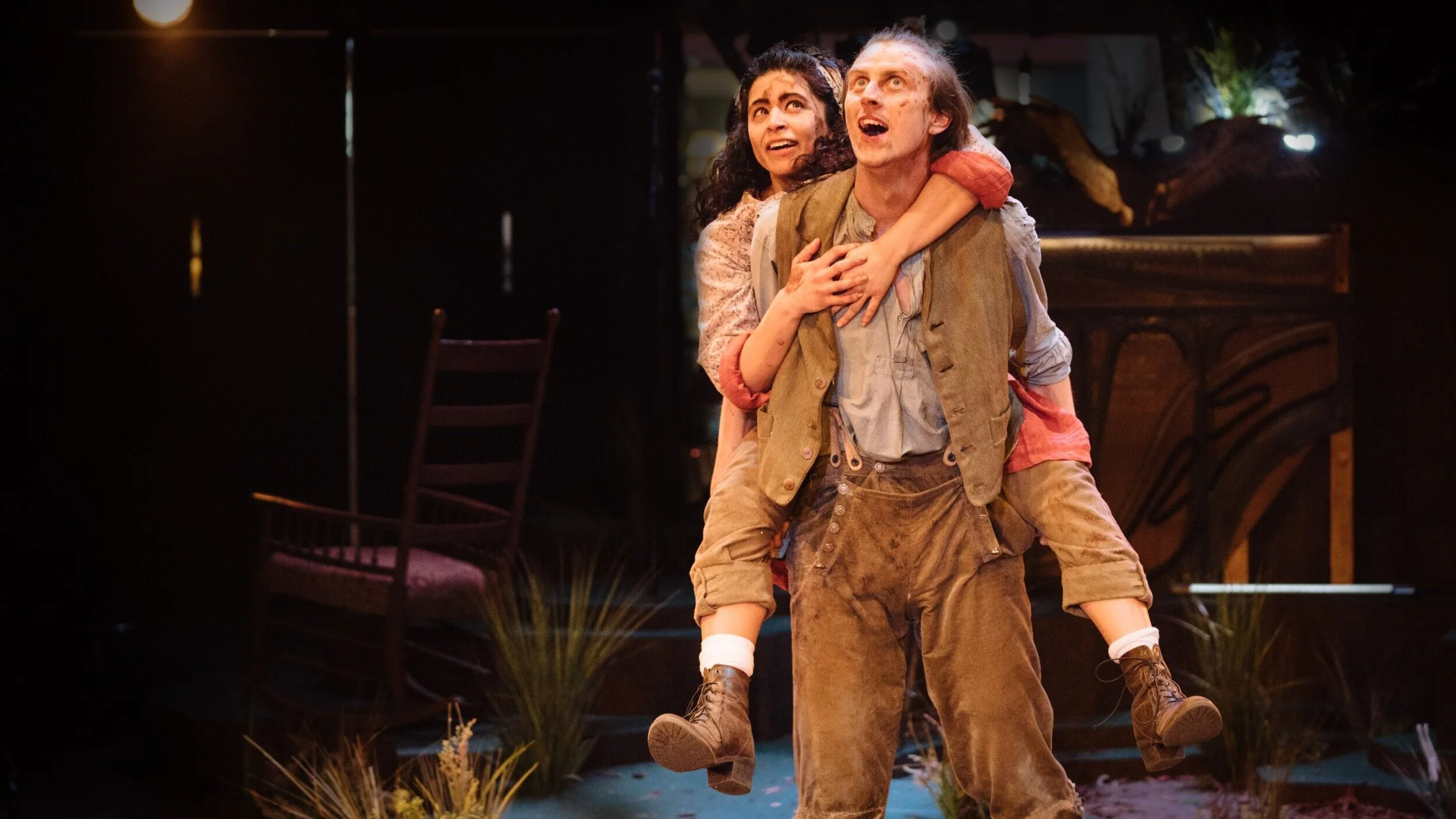Sisterhood and Cyborgs: Electric Rosary at the Royal Exchange
Winner of the 2017 Bruntwood Prize for playwriting, Electric Rosary comes to life on stage for the first time. Robots, rioting and religion collide in this story that challenges the bonds of sisterhood and questions the very bounds of humanity.
We look in on the sisters of St Grace’s convent, as they look out on the chaos that surrounds their sanctuary. A luddite rebellion is in full-swing off-stage; on-stage, we welcome Mary - a council-funded robot - to the dwindling sisterhood. As you might expect, some sisters are more welcoming than others. Mary’s very presence expands existing rifts in the group, holds a mirror to unspoken truths, and - ultimately - acts as the magnetic core around which the whole cast orbits.
Breffni Holahan, as Mary, explores the brink of tradition and technology. Photo by Helen Murray.
Played expertly by Breffni Holahan, Mary is charmingly slapstick in her robotic movements. There’s not a bent wrist in sight nor a syllable out of line in her inhuman cadence. Her timing and dedication to her physicality are second to none. As “no one”, Mary is afforded the freedom to say exactly what she thinks and observes, much to the audience’s amusement.
Tim Foley’s script is rightfully award-winning, sprinkled with witticisms, unexpected narrative turns, and some well-crafted poignant moments. Indeed, it feels like a rare treat to watch a play with next to no idea where the story will take you next amongst numerous possible routes for the plot.
The all-female cast balance one another beautifully to create very distinct characters, as a group who share a convent and a calling but few other similarities. Thereasa, played by Saroja-Lily Ratnavel, is a bubbling bundle of light relief and energetic naivety. Whilst Olwen May, as Sister Constance, is Thereasa’s polar counterpart. She offers up some of the play’s comedic highlights through sheer sarcasm and excellent timing.
The set design (by Charlotte Espiner) is pared back: a parquet-floored platform for the characters and the text to sing out upon. This feels apt for a convent, reflecting the traditional unassuming habits as costumes. The second act sees the introduction of chains, which leave the audience on the brink of anticipation - we wait eagerly to see how the set will transform, and for what purpose.
In contrast to the simple set comes the sheer quantity of prop-work. Lighting candles, unpacking boxes, and tupperware-sealing a plate of pink wafer biscuits all add a careful sense of realism to this dystopian world. It is through this calculated use of props that we enter the convent entirely and join the cast in their philosophical and moral quandaries.
Indeed, props also enhance the physical comedy that underpins the production. Never before have I seen an audience roar with laughter at the use of a mop! Director Jaz Woodcock-Stewart leads the cast to play with the text, their surroundings and their characterisation, to wonderful fruition.
Impeccable a cappella hymns cover the longer scene changes beautifully and add gravitas between some of the sillier scenes. Whereas, at times, the technical elements of the show feel a little overdone. As we bounce between rapid two-handers, dramatic sound and lighting create a slightly disjunct pace.
Between a leadership battle, the promise of a pilgrimage, and the rapid evolution of a supernaturally-aware robot, the second act takes on the task of tying up plenty of loose ends. It’s busier, yet slower, than the first and the wit is scattered a little less liberally. The cast catch our attention with humour in the first half; the second half is where playwright Tim Foley begins to amplify his message.
As an audience, we are invited to sympathise with Mary, the robot, perhaps even more so than any human character. We question whether faith is exclusively a human characteristic and where we ought to draw the line between human and machine. Above all, we are left to consider how we respond to progress - whether we can gain more from fighting against development, locking ourselves away from it, or inviting new technological advances into our lives.
For a play to make you laugh, make you think, delight and surprise you all in an evening’s work, it must be something special.
Electric Rosary plays at the Royal Exchange Theatre, Manchester, from 23rd April to 14th May 2022. For tickets to this world-premiere production, visit the Royal Exchange website.
Photos by Helen Murray.
Explore more of the Royal Exchange’s finest amongst our archive of theatre reviews.






